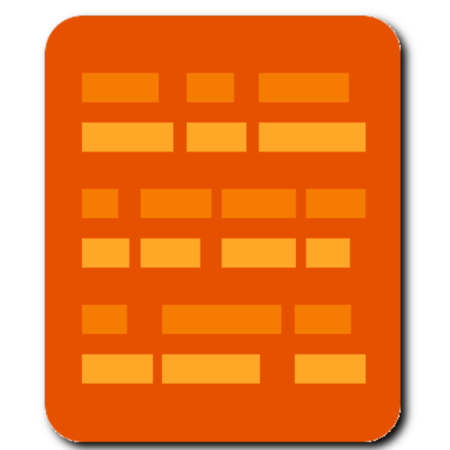News — Language Learning
The Rosetta Stone
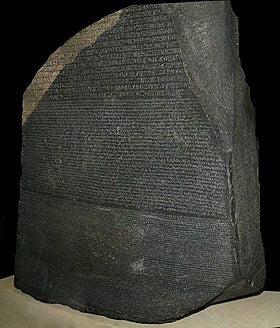
Have you ever stopped to think about the marvel that is language learning? Picture this: In 196 BCE, the Rosetta Stone offered scholars a linguistic trifecta, bridging Greek with Egyptian hieroglyphs and Demotic script. This ancient slab was the ultimate translation tool of its time, unlocking languages that had been silent for centuries! Fast forward to today, and we have HypLern, brightening the path to polyglot paradise with interlinear glosses that make new languages as accessible as ordering your fave latte. What started with chisels and mystery has evolved into clicks and clarity. From stone to screen, the quest to...
Learning a Language with HypLern

Language learning has always been a challenging task for many people. Whether you are trying to learn a new language for personal or professional reasons, the process can be daunting. However, with the advancements in technology, language learning has become more accessible and convenient than ever before. One of the most effective and efficient ways to learn a new language is through interlinear word for word translated literature, and HypLern is one of the best platforms to do so. HypLern is an innovative language learning platform that provides interlinear word for word translated literature. This platform allows learners to...
HypLern and Great Reviews
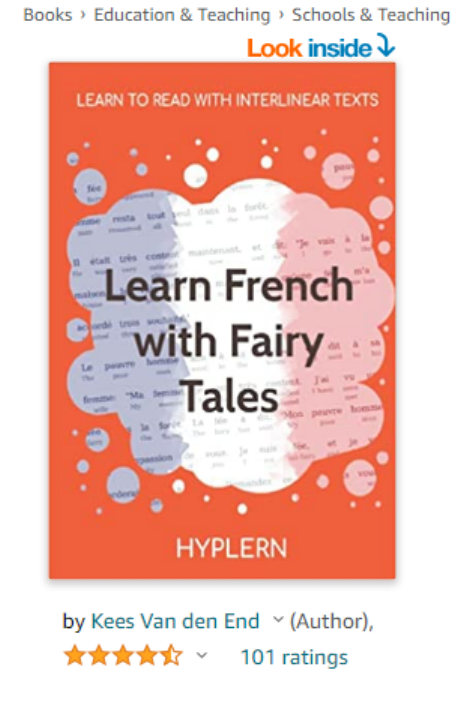
As a language learner, discovering the right language resources can make all the difference in your studies. HypLern Interlinear books have proven to be an exceptional resource for language learners looking to enhance their skills in a new language. These books offer a unique opportunity to learn a new language by studying literature written in the target language. HypLern Interlinear books are the perfect tool for language students who want to master a new language through reading. These books provide a delightful reading experience while also providing valuable support for learning new vocabulary and grammatical structures. With a clear...
Learn German with part 1 of the novel Every Man Dies Alone
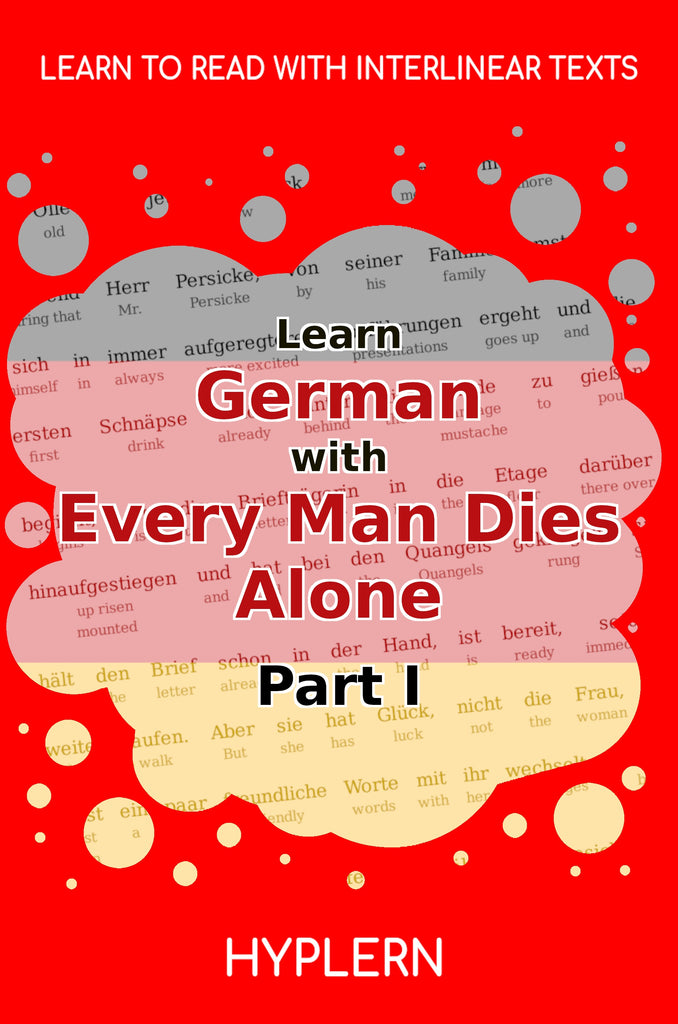
Hans Fallada was one of the most influential German writers of the twentieth-century. His 1947 novel, Every Man Dies Alone, is a revered classic of post-war literature. The story follows two ordinary working class people, Otto and Anna Quangel, in their desperate attempt to resist Nazi rule during the Second World War. Despite its semi-autobiographical nature, Fallada’s work has been praised for its gritty realism and unvarnished portrayal of life under fascism. HypLern recently published an interlinear version of this book from German to English. This edition allows readers to easily follow the flow of Fallada’s original text while simultaneously...
Learn Norwegian fast and easy with Henrik Ibsen's Doll House

Henrik Ibsen's iconic play, Dollhouse, is a classic of modern theater. First published in 1879, this social drama follows the lives of Nora and her family as they struggle with the conventions of society. As Nora's world unravels, she must decide between freedom and societal norms. HypLern recently released an interlinear version of Dollhouse from Norwegian to English! This allows readers around the world to appreciate this timeless work of art in its original language. It is a testament to HypLern's commitment to making literature accessible regardless of language barriers. The story itself is deeply personal and deals with themes...
Learn German fast and easy with Interlinear Books
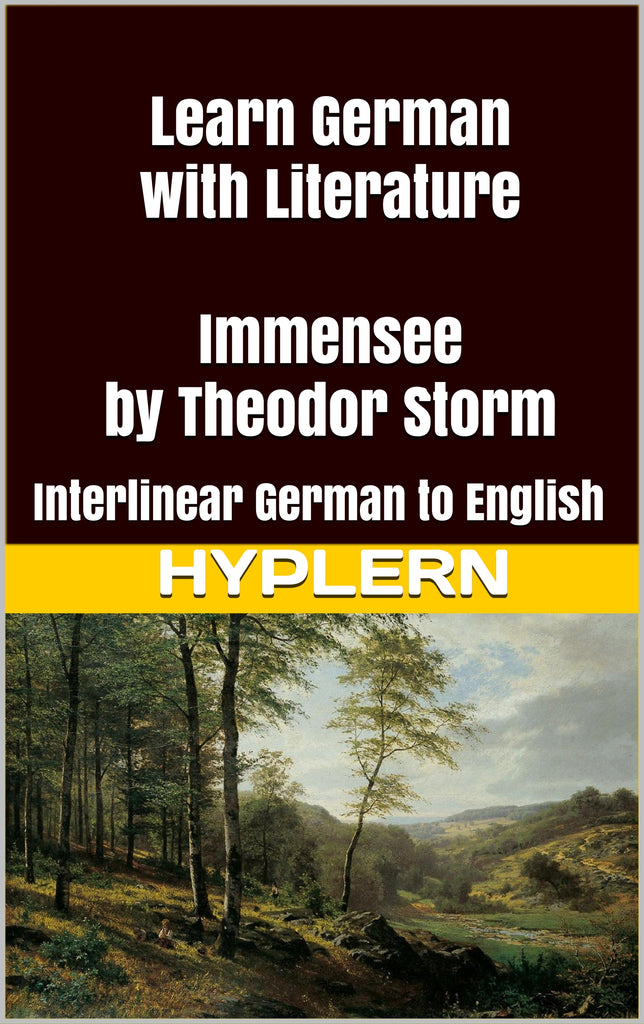
Theodor Storm is a 19th century German author known for his short stories and novels. One of his most beloved works is "Immensee", a novella set in the windswept landscapes of Schleswig-Holstein. The story follows an old man, Reinhard Werner, who dedicated his life to gathering old stories and songs, and is interspersed with flashbacks on his life and the love of his life. He left the girl he grew up with, Elisabeth, to study in the city and work on his collection of stories and told her to wait for him. But his life as a student and his...
Learning a Language the Fun Way—Through Literature!
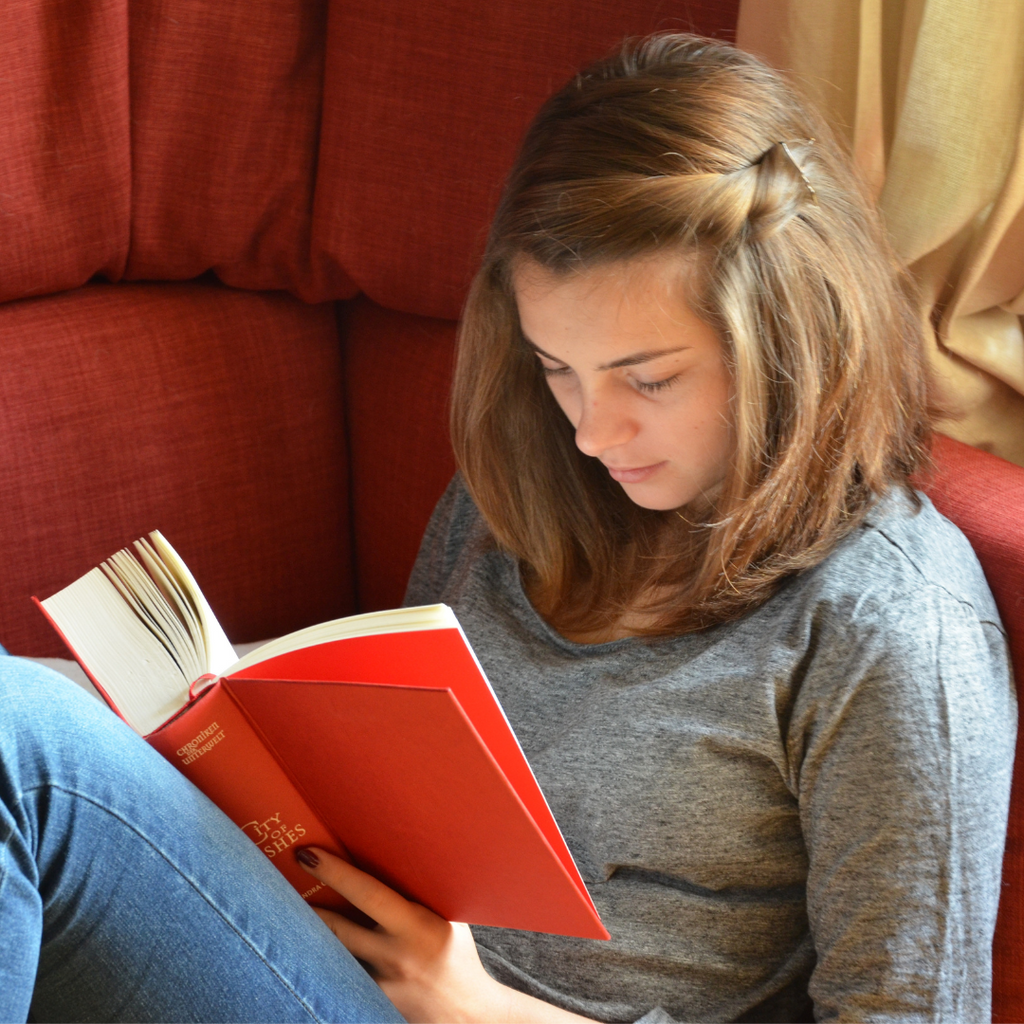
Have you ever wanted to learn a language but found it too dry and unenjoyable? We understand that learning something new can be difficult, especially when it involves grammar rules and memorizing vocabulary words. But here’s the thing—language learning doesn’t have to feel like a chore. In fact, one of the most fun ways to learn a language is through literature! Why Learn Through Literature? Learning through literature does more than just teach you the vocabulary of a language; it also exposes you to nuances in grammar and phrases that are used in everyday conversations. Plus, reading literature gives...
Bilingualism is a Benefit
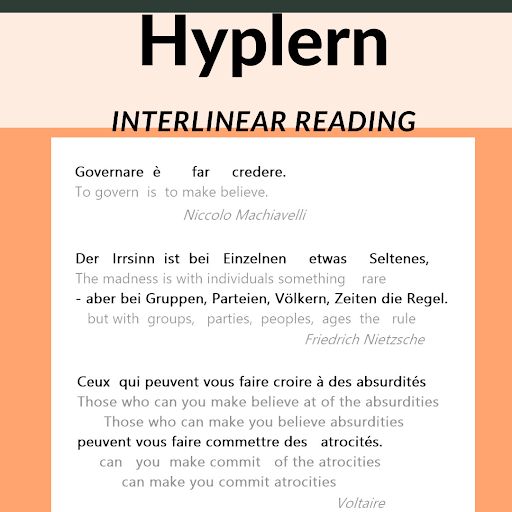
Learn to Read Spanish and Learning Grammar
How To Learn Grammar Fast and Easy As argued before, grammar should be acquired, not learned. This doesn't mean you can ignore grammar, but studying grammar before experiencing the language is simply doing it the unnecessary hard way. It's good to have an idea of the grammatical components of Spanish before starting to read. That way you know what you can encounter. And when you start reading, and refer back to the grammar, you pick up the rules fast and easy. Like French or Italian (If That Helps) Spanish Grammar is similar to French grammar, which is also a Roman...
German Grammar
Articles and Nouns When starting to read German texts, apart from a basic vocabulary, it is nice to have a basic understanding of the grammar. It will not demand much study time, just read this blog or a wiki page and see what you can encounter. The most basic difference is that German nouns start with a capital, but there is more complex stuff about articles and nouns. For example, the English article and noun combinations "the village", "the city" and "the state" translate in German to "das Dorf", "die Stadt" and "der Staat". The first one as the neuter, the...
The Steps To Learn A Language Fast & Easy
Step 1: Get A Basic Understanding Maybe you already have a base vocabulary of the language that you want to learn. You might have picked it up at school, but we all know that after language education at school where not everyone is very motivated most of us end up with just that. A basic understanding. If you don't know anything about the foreign language you want to learn, get yourself any second hand coursebook from which you can pick up the highest frequency words and some basic grammatical lessons. Or see if there is a Blog article on our website already...
Learn Italian Simply by Reading
New: Italian Short Stories Now you can continue your vocabulary expansion with Italian Short Stories. Any new words encountered in the text will be learned when rereading the text until you are fluent, and can also be stored for practice, where the software will determine from the frequency of the unknown word in the text how many times you would need to test or study the new word to retain it in your memory. As opposed to the Fairytales product there's no audio added and as such the price of the product is lower. Example screenshot: These short stories were...
Dutch Grammar
Dutch Nouns Dutch grammar is similar to German grammar and to a lesser extent English grammar. For Dutch nouns, like with German, there are different definite articles ("de" and "het" both meaning "the") for which the correct article has to be learned by experience (it is "het dorp (the village)" but "de stad (the city)"). For this, extensive reading is perfect. Words and their articles are assimilated naturally. When you read a lot of Dutch texts you will only encounter the correct combinations of nouns and their articles, and as such it will become part of your memory. For the...
Extensive Reading with Spaced Repetition
Spaced Repetition - Fast, but Boring and out of Context To learn vocabulary there are two major methods, flash cards and extensive reading. Regular vocabulary training (learning word lists) has evolved to spaced repetition flash card systems. This comes down to learning and remembering all of the words in a relatively efficient way. However users of the flash card method often complain of boredom and becoming averse to the system. Another problem of this method which may well be the cause of this aversity is that one is trying to fill the brain in an unnatural manner. Your brain is filled with single...
French Grammar
Verb or Adjective Inflections There's no need to cram all French grammar before you have done any reading. The best way to acquire new knowledge is to experience it. So start reading and when you run into a peculiar verb form in French just look it up on a chart. Before starting to read French, it is useful to distinguish between language components and be able to recognize for example verb or adjective inflections. The main component of French grammar is conjugation of the verbs. For verbs in the present tense this is the same as with the English difference between...
The Need For Grammar
Learning Grammar In natural acquisition theory, grammar is not learned but acquired by long term observation of the language patterns. That means you hear your native language only used according to certain rules, which together make up the grammar. Accordingly you use it the same way. Grammar governs the composition of words from roots, and sentences from words in a language. When learning a second language, there is often much stress on the notion to acquire it artificially. Bits of grammar will be combined with new words and a short text where both the new words and the grammar are...
Spaced repetition In Language Learning
Advanced Word List Cramming Language learning systems using spaced repetition help you learn words by reminding you on set intervals which words to learn. It comes down to smart vocabulary list learning. If you cram a list of words you might remember them on the next day's exam, but not the week after. Handy for a high school student, not handy for someone who wants to actually learn the language. A spaced repetition system would remind you to look at the words again the next day, then after three days for example, and finally after eight days of seeing them the...
Language Root Learning
Do Roots Help To Read Faster? Most words of a language can be classified in word families and many word families are based on the same root. So for example 20.000 words can be from only 2000 word families which are based on just 400 word roots or stems. Dutch "begrijpelijk" (understandable) comes from the word family / verb stem "begrijp" (understand) which in turn is based on the root "grijp" (grasp). We can all grasp the meaning of this. Once you have encountered enough words within a word family you can sort of guess the root. Or vice versa, if you learn...
Repetition In Language Learning
Repetition Repetition Repetition When encountering a word for the first time when reading a text, you look up its meaning, but you will forget it immediately as well, most of the time. You might be looking up the same word over and over in a dictionary until it finally starts sinking in. Picking up the dictionary can become quite annoying. Old fashioned vocabulary list learning often consists of going over the same words again and again until you memorised them. Not the most exciting part of High School. Both come down to repetition. Repetition is the key to new vocabulary...
